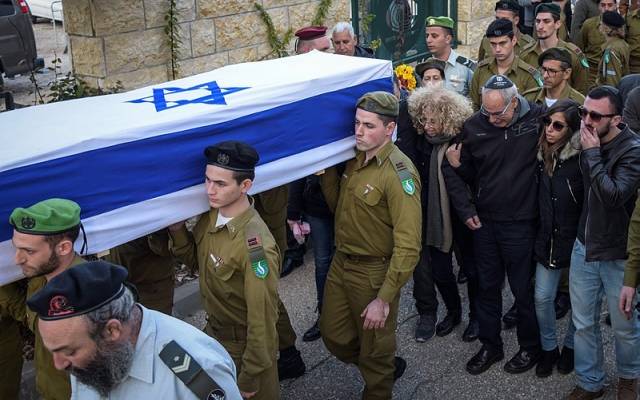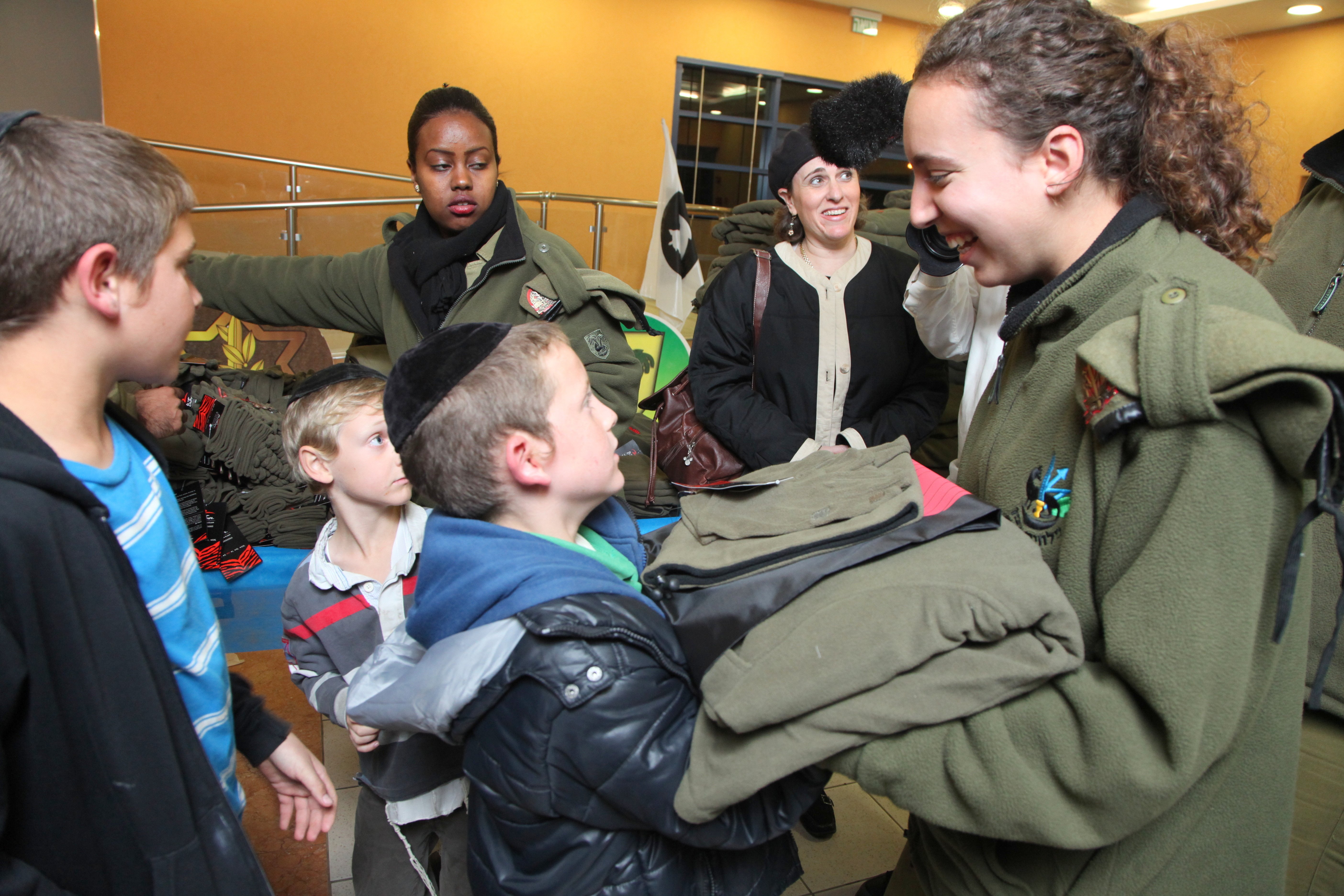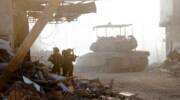Each act of bravery, every letter sent home, is a testimony to a legacy of resilience and hope.
By Pini Dunner, The Algemeiner
On October 7th, 19-year-old Corporal Naama Boni was serving in the 77th Armored Corps Battalion of the IDF. It was 7:00 am, and she was standing guard at the entrance of the Zikim military base just north of Gaza, soon after it had come under intense rocket fire.
Suddenly, out of nowhere, dozens of Hamas fighters arrived at the base, on motorcycles, trucks, and tractors, armed with high-caliber rifles and RPGs. Minutes earlier these terrorists had broken through the Gaza-Israel barrier and raced toward the base, intending to take it over and murder all the soldiers stationed there.
Naama called for reinforcements and was quickly joined by three soldiers who rushed to the gate without their uniforms on, and also by a member of the 13th Battalion of the Golani Brigade who had been stationed at the rear of the base. In the fierce exchange of fire that followed, Naama was wounded, as was her Golani colleague, and they both sought cover.
It was at this point that Naama messaged her family. “I care deeply for all of you,” she texted. “I have a head injury, and a terrorist nearby might start shooting at me. I am now with an injured soldier from the Golani Brigade, and no reinforcements are available.”
Soon afterward, she texted again: “There is a terrorist here who won’t go away. I can hear someone screaming, and it looks like someone has been killed.” That was her last text. Naama’s body was discovered later that day, when the invading terrorists were all finally killed.
Naama’s text messages — which went viral after being shared by her family a few days after she was killed — struck a chord in Israel and around the world, giving human depth and background to Naama’s photo and name that initially appeared in the media after her death was announced.
Since then, dozens of other similar stories have emerged. On December 3rd, 22-year-old Major General Ben Zussman, entered a building in Gaza with his unit. Inside they encountered Hamas terrorists, who began firing their weapons. In the ensuing gun battle, Ben lost his life, along with four of his comrades. The following week, Ben’s parents revealed a letter he had written to them, to be opened only if he became a casualty of war.
“I am writing this message to you on the way to the base,” his letter began. “If you are reading this, something must have happened to me.” What followed was both poignant and heartbreaking. “As you know, there is probably no one happier than me right now. I had the privilege of fulfilling my dream and vocation and you can be sure that I am looking down on you and smiling. I will probably sit next to Grandpa.” Finally, he added that if “God forbid” his family had to sit shiva for him, “make sure it is a week of friends, family and fun.”
Adi Leon, an IDF Staff Sergeant of 20, also left a letter for his family. They received it after he was killed in a gun battle on October 31st, the first day of the ground incursion into Gaza. “I go out to fight this war with the knowledge that I am not certain I will return, but I believe with a full heart in what I am doing. We do not have another land, and now it is my turn to protect it and to avenge all the civilians and soldiers, the children, the elderly, and all the women who were defenseless in the face of the onslaught by Hamas. This is the education that my parents gave me. In this I believe. I hope I will be remembered. Adi.”
The letter gained widespread attention and was quoted by President Isaac Herzog. That same week, Adi’s aunt shared his favorite chocolate cake recipe, and that went viral too; people everywhere are now baking Adi’s cherished cake, with some even sending them to soldiers on the front-lines as a tribute to his memory.
In the opening verses of Shemot, the Torah mentions the names of all 12 sons of Jacob, then telling us that they had died, along with their entire generation. The commentaries puzzle over this introduction; the sons of Jacob are seemingly irrelevant to the unfolding narrative of the Israelite’s enslavement by the Egyptians, and the ultimate redemption of the Exodus story. Additionally, the Torah is well known to be sparing with its text — so why are we presented with this unconnected genealogical information?
The answer is simple: The opening verses of Shemot are not meant to be seen as a genealogical recounting, but rather they act as a meaningful link between the closing chapters of Bereishit and the story of Israel in Egypt. The names of Jacob’s sons are invoked to remind us that although these superlative individuals were no longer present, their legacies endured, and were shaping the destiny of the nascent nation. This continuous thread of identity and purpose bound the trials of our patriarchal founders to the tribulations and aspirations of the Jewish people in their subsequent servitude and liberation.
The stories of Naama, Ben, and Adi, as recorded in the communications with their families — and the stories of all the many young soldiers whose lives have been sacrificed during this horrible war — are modern echoes of this unbroken chain of legacy.
The values instilled by our patriarchs and the dreams nurtured through centuries of perseverance find their expression in the courage and sacrifice of these young guardians of Israel. Their letters, filled with echoes of love for family and nation, are a testament to the enduring influence of those who came before them. They are a powerful affirmation that the spirit of our founding fathers, their fortitude, and their faith, live on in the hearts of their descendants.
To be clear — mentioning the tribes at the beginning of Shemot is not just about using their names as a literary device to connect the end of Bereishit with Shemot. It is about reaffirming a promise — the promise that each generation will carry forward the sacred legacy bequeathed to them by the generation that preceded them.
The tribulations in Egypt and the subsequent exodus were not just formative events, but were chapters in a larger narrative of a people that was inexorably linked to their past, as they lived out the dreams and ideals of their forebears. So too today. Each act of bravery, every letter sent home, is testimony to a legacy of resilience and hope that stretches back to the dawn of Jewish history, and which will continue until the end of days.
Keep Israeli Soldiers Warm - Send Winter Jackets!
We are honored to thank the young men and women of the IDF who risk their lives every day to defend the citizens of Israel.
Join us in sending winter care packages and personal notes of support to Israeli soldiers who are out in the cold all day.
Warm up a soldier's heart with essential winter wear including fleece jackets, hats, gloves and more. Keep an entire unit warm!
THE SOLDIERS REALLY APPRECIATE YOUR LOVE AND CONCERN!























